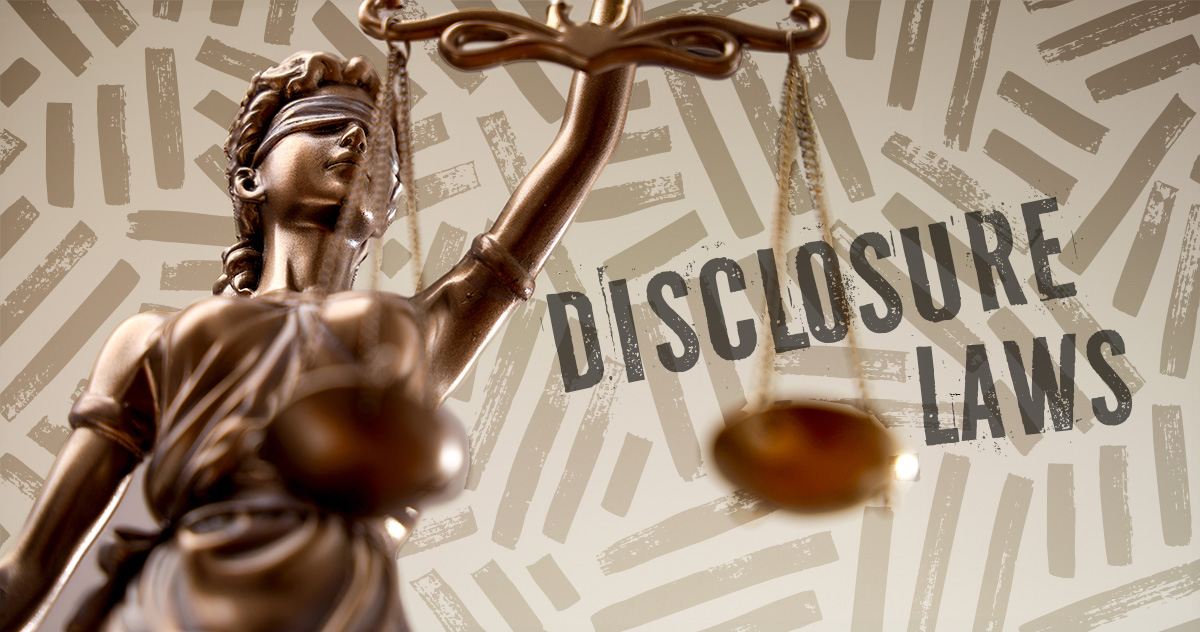
By: Louis Catania, Division of Infectious Disease and medically reviewed by Ann K. Avery, MD, Infectious Disease Physician at MetroHealth Medical Center
Say it after me: It’s wrong to be treated differently based on something out of one’s control. 💕
Luckily, there are protections in place—like anti-discrimination laws-- to hush people who don’t respect your rights. Still, it’s overwhelming to figure out exactly if and how you’re protected. Luckily, that’s what this article is about!
We all get that there are plenty of tough (and wrong) situations where an employer or a partner tries to get you to share something, even when you don’t have to, or don’t want to. 🙄 Read on to learn how you’re protected, and when to pay attention to HIV disclosure laws.
The important anti-discrimination laws
Two main laws protect you from being treated differently, in a general sense:
- Section 504 of the Rehabilitation Act applies to medical care and social services. Any agency or medical facility that gets federal funding can’t discriminate when providing services for people living with HIV. 🥳
- The Americans with Disabilities Act (ADA) protects people with HIV from workplace discrimination. Employers can’t deny someone from working because they have HIV. 👷
There are other laws, too, like Section 1557 (which is also about health care). The important thing to remember is that if there’s a certain service that you’d imagine should be open to all—like hospitals, nursing homes, doctor’s offices, dentists, and gyms-- there are laws that ensure people with HIV can access these places, just like anyone else. 🧑⚖
Next up, HIV disclosure laws
HIV disclosure laws vary from state to state. In May 2024, there are 18 states where you have to tell people your HIV status before vaginal, anal, or oral sex. These laws kick in even if:
- 🍆 You use a condom
- 💊 You take antiretroviral therapy (ART) and your viral load is undetectable (U=U)
- ❌ Your partner doesn’t have HIV after sex
So, regardless of the situation, in some states, you must tell sexual partners or needle-sharing partners about your status.
Now get this: in many places with HIV disclosure laws, not disclosing before sex can result in criminal charges. This sounds scary, and it is. It drives a lot of the stigma behind HIV, too. These HIV disclosure laws have existed since before the awesome treatments we now have were widespread, and before U=U became a thing.
Here's the deal: when someone is taking ART as prescribed and is undetectable, HIV can’t be transmitted. Period. Full stop. Criminalization, if anything, amps up the stigma behind HIV. It isn’t ok, and it needs to go.
Luckily, in many states, your HIV status is only your business to share when you feel comfortable sharing it. The best way to see your state’s regulations is by using hivlawandpolicy.org. ✅ If you want to join the work of advocating against outdated HIV criminalization laws, check out https://www.hivisnotacrime-etaf.org/
Pointing out that stigmatizing laws are not ok doesn’t mean that having conversations with partners about HIV status isn’t important. Talking openly and honestly about HIV disclosure is a great thing to do, too. Read this article for more info.
What about outside of sex?
There’s only one state where HIV disclosure laws require you to tell medical personnel before you can receive care (which is Arkansas, and it’s only for dentists). Anywhere else, you can feel confident knowing you don’t have to tell a medical professional about your status in this situation.
Also, keep in mind that if you have health insurance through your work, your insurance company cannot tell your employer about your HIV status. It’s your business and your business alone. 😷
Do HIV disclosure laws and antidiscrimination laws still seem way too complicated?
It’s fine to have questions! You can speak to a legal professional to help you, especially if you feel you might be facing discrimination.
And if you need emotional support, one of the best things you can do is speak with people who have gone through similar situations. Why not join a support group? Or download the Positive Peers app, where you can get resources like this blog and speak to other people living with HIV. 💗